Evidence of Middle Pleistocene subsistence
Array
Array
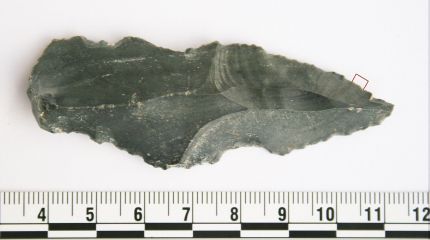
How smart were human-like species of the Stone Age? New research published in the Journal of Archaeological Science by a team led by paleoanthropologist April Nowell of UVic reveals surprisingly sophisticated adaptations by early humans living 250,000 years ago in a former oasis near Azraq, Jordan.
Battling parasite-borne disease and improving family fitness are the goals of two University of Victoria projects recently awarded funding from the Canadian Institutes of Health Research (CIHR). With his seven-year, $959,663 foundation grant, exercise psychologist Ryan Rhodes will explore how parental support can move good intentions about exercise into actions for the entire family. UVic biochemist Martin Boulanger will use his five-year $825,000 project grant to continue research into how Apicomplexa—the group of single-celled parasites that cause toxoplasmosis and severe malaria—invade host cells.
A team of engineering researchers from UVic and the University of Rochester has developed a way to detect single molecules using a light-based technology inspired by the “whispering gallery” effect, first discovered in London’s iconic St. Paul’s Cathedral.
On July 19, Prime Minister Justin Trudeau announced the creation of the Prime Minister’s Youth Council, a body of 30 young Canadians aged 16 to 24, who will provide non-partisan advice to the Prime Minister on national issues such as employment, access to education, building stronger communities as well as climate change and clean growth, among others.
UVic historian Martin Bunton is available to media to discuss the aftermath of the attempted coup in Turkey. He is also the current interim director of UVic’s Centre for Global Studies.
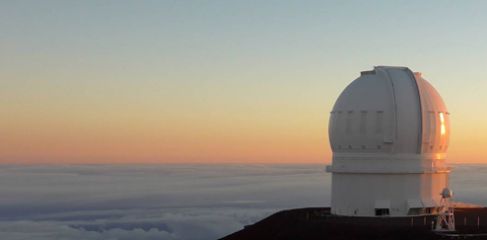
Two University of Victoria-based researchers are part of an international team of astronomers who have discovered a new dwarf planet orbiting in the disk of small icy worlds beyond Neptune.
These University of Victoria experts are available to media for comment on the European Union referendum scheduled to be held on Thursday, June 23 in Britain.

Sociologist Neena Chappell and legendary Vikes basketball coach Kathy Shields were two of 113 appointees named to the Order of Canada over the long Canada Day weekend for their contributions to (and on) their respective fields and courts.
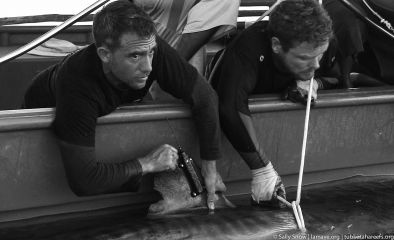
An international research team recently placed the first ever satellite tracking tag on a tiger shark in one of the world's most pristine reefs—the UNESCO world heritage site, Tubbataha Reefs Natural Park, which teems with marine life and draws scuba divers from around the world—and is now tracking its movements in real time. University of Victoria geographer Phil Dearden is assisting this project, which is led by the Tubbataha Management Office (TMO) and the marine conservation group Large Marine Vertebrates Research Institute Philippines (LAMAVE).
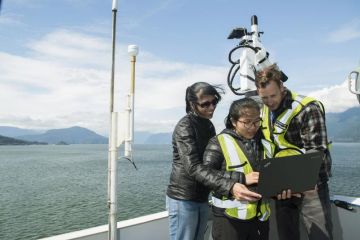
Passengers on BC Ferries this summer have an exciting opportunity to help scientists better understand ocean health and declining salmon populations in the Salish Sea.
Co-op and Career Executive Director Dr. Norah McRae has been awarded the 2016 Dr. Albert S. Barber Award from the Canadian Association for Co-operative Education (CAFCE).
Letter from the Childcare Parenting Alliance and letter from Campus Services, in response to the Child care to expand full-time care notice.
It's an interconnected world that we live in—approximately 7 million students will be engaged in international mobility by 2022, according to the Canadian Bureau of International Education. Understanding how to communicate effectively with coworkers from culturally diverse backgrounds is a career-building strength in today's global workplace—a strength that is being fostered by the University of Victoria's international co-operative education (co-op) program. The award winning Canada-Europe Co-op (CANEU-COOP) program is one of many international co-op programs where students can build these coveted skills.
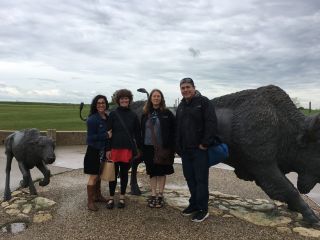
UVic offers the only master’s degree in the country specializing in Indigenous language revitalization and it draws people from across Canada. Now, for the first time, the program itself has travelled east—bringing the curriculum to UVic students on site at the University of Saskatchewan beginning July 12.
A new diagnostic test to determine whether cancer patients should respond well to a specific targeted drug therapy is the goal of a project awarded funding from Genome Canada.